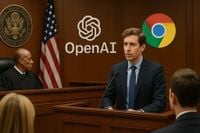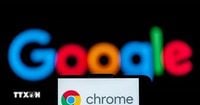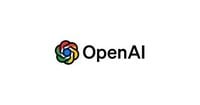In a striking development during a federal court hearing in Washington, D.C., Nick Turley, the head of product for ChatGPT at OpenAI, revealed the company's keen interest in acquiring Google Chrome, should Alphabet be compelled to sell it as a remedy for its alleged monopolistic practices. This statement comes amid ongoing antitrust proceedings against Google, where the U.S. Department of Justice (DoJ) is pushing for significant changes to the company's operations in the online search and digital advertising markets.
The DoJ has accused Google of maintaining an illegal monopoly through exclusive agreements and the strategic use of its own products, particularly the Chrome browser, to reinforce its dominance. Judge Amit Mehta has acknowledged the monopolistic nature of Google's operations, paving the way for potential drastic measures, including the divestiture of Chrome.
"If Google is forced to sell Chrome, it would be a game changer for us," Turley stated during his testimony. He emphasized that such an acquisition would not only bolster OpenAI's position in the competitive landscape of online search but also reshape the entire digital advertising ecosystem. Chrome, which is more than just a browser, serves as a crucial platform that significantly directs web traffic to Google’s search engine, thus solidifying its market position.
OpenAI’s interest in Chrome underscores a broader ambition to transition from being a technology partner to a leading player in the web search sector. Currently, OpenAI collaborates closely with Microsoft, which has invested heavily in the company and whose Bing search engine powers some of ChatGPT's functionalities. Despite Bing's capabilities, it controls only about 12% of the search market, in stark contrast to Google's commanding 78%.
Turley pointed out that acquiring Chrome would enable OpenAI to gradually lessen its reliance on Bing, opening up opportunities for a more proprietary search system driven by artificial intelligence. This integration could lead to a new era of web capabilities—one that is more predictive, conversational, and aligned with users' genuine needs.
During the court proceedings, Turley also revealed that OpenAI had previously sought to collaborate with Google by proposing the integration of its search technology within ChatGPT. However, Google declined the offer, a decision that has sparked a hidden rivalry between the two tech giants. This rejection illustrates not only Google’s reluctance to share its search capabilities but also its commitment to maintaining its competitive edge in the market.
As the DoJ continues to pursue its case against Google, the implications of these proceedings are profound. If the government succeeds in forcing Google to divest Chrome, it could disrupt the existing balance of power in the tech industry, allowing new competitors like OpenAI to emerge. Such a shift could compel other players, from Safari to Firefox, to rethink their strategies in the browser market.
Moreover, the digital advertising sector, which has long been dominated by Google, would likely experience significant upheaval. The potential sale of Chrome could also lead to a reevaluation of the agreements Google has with companies like Apple, which has historically benefited from Google's financial incentives to keep it as the default search engine on Safari.
In addition to Chrome, the DoJ is also contemplating the possibility of requiring Google to sell Android, although this would only occur if other remedies fail to prevent Google from exploiting its operating system advantages. Such measures would fundamentally alter the competitive landscape, potentially allowing OpenAI to leverage its AI technologies in ways that have not been previously possible.
As the legal battle unfolds, the potential for OpenAI to acquire Chrome raises questions about the future of digital search and the role of AI within it. Turley articulated that access to real-time search data from Google would significantly enhance OpenAI's ability to develop better products more rapidly.
Furthermore, Turley mentioned OpenAI's proposal to share revenue generated from integrating ChatGPT with Apple's Siri, although it remains uncertain whether Apple would accept such an arrangement. This potential partnership reflects OpenAI's strategy to expand its influence and capabilities across various platforms.
In the context of the ongoing antitrust case, Turley noted that the DoJ's efforts to compel Google to share its search data with competitors could accelerate the development of ChatGPT's search capabilities. He remarked, "Improving our search functions is critical, as they currently account for a significant portion of ChatGPT's responses. We aim to answer 80% of user inquiries more efficiently with enhanced search technology."
As the courtroom drama continues, the stakes are incredibly high—not just for Google and OpenAI, but for the entire landscape of digital technology. The outcome of this case could usher in a new paradigm where AI-driven search technologies play a pivotal role in shaping how users interact with information online.
In summary, the potential acquisition of Chrome by OpenAI could signify a monumental shift in the tech industry, challenging the status quo established by Google and paving the way for innovative advancements in AI and digital search. The unfolding events will undoubtedly keep the tech world on edge, as the implications of these legal proceedings could redefine the competitive dynamics of the digital age.






